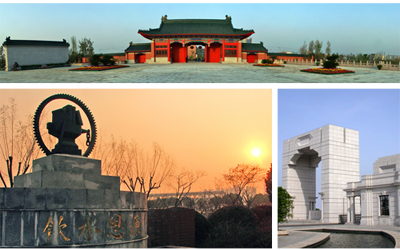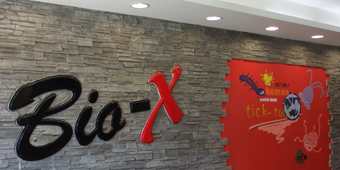Our Team
2012 SJTU-BioX-Shanghai is composed of eleven students and three instructors from SJTU and this is the fourth time for our school to participate in iGEM.
 2012 SJTU Bio-X Shanghai iGEM Team logo Our understanding to synthetic biology grows with every paper we read, every lecture we attend and every idea we proposed. Start with passion, we come together because of a common dream to design something cool, something brand-new and something that is applicable. We are also attracted to the broad and promising future of synthetic biology, hoping that this competition can be our debut in making contributions to human health, energy resources, research and any other field with synthetic biological methods.
There are innumerable brilliant ideas in the brain storming. There are fierce discussions in the lab meeting. There are obstacles in experiments. There are busy bodies working into midnight. We laugh, we enjoy. We argue, we improve. One thing that never changes is our trust to each other. We are teammates, we are friends, we are family.Another thing that will not change is our confidence in our project and our dream. That is what keeps us moving forward without fear.
Shanghai Jiao Tong University (SJTU)
An imperial edict issued in 1896 by Emperor Guangxu, established Nanyang Public School in Shanghai. The normal school, school of foreign studies, middle school and a high school were established. Sheng Xuanhuai, the person responsible for proposing the idea to the emperor, became the first president and is regarded as the founder of the university.
 Shanghai Jiao Tong University Since the reform and opening up policy in China, SJTU has taken the lead in management reform of institutions for higher education, regaining its vigor and vitality with an unprecedented momentum of growth. SJTU includes five beautiful campuses, Xuhui, Minhang, Luwan Qibao, and Fahua, taking up an area of about 3,225,833 m2. A number of disciplines have been advancing towards the top echelon internationally, and a batch of burgeoning branches of learning have taken an important position domestically.
Today SJTU has 31 schools (departments), 63 undergraduate programs, 250 masters-degree programs, 203 Ph.D. programs, 28 post-doctorate programs, and 11 state key laboratories and national engineering research centers.
SJTU boasts a large number of famous scientists and professors, including 33 academics of the Academy of Sciences and Academy of Engineering, 92 accredited professors and chair professors of the "Cheung Kong Scholars Program" and more than 1,900 professors and associate professors.
After more than a century of operation, Jiao Tong University has inherited the old tradition of "high starting points, solid foundation, strict requirements and extensive practice." Students from SJTU have won top prizes in various competitions, including ACM International Collegiate Programming Contest, International Mathematical Contest in Modeling and Electronics Design Contests. More than 200 of the academics of the Chinese Academy of Sciences and Chinese Academy of Engineering are alumni of Jiao Tong University.
http://www.sjtu.edu.cn learn more...
Bio-X Institutes
The Bio-X Institutes of Shanghai Jiao Tong University was formed in 2005 by merging the Neuropsychiatric and Human Genetics Group (NHGG), which was established in 1996, and the Bio-X Life Science Research Center, which was established in April 2000.
 Bio-X Institutes The founding of the Bio-X Institutes represents a landmark in interdisciplinary research among the life sciences. The mission of the Institutes is to provide not only an interdisciplinary institute, but also to serve as a forum for discussion among scientists and students from a variety of disciplines and fields.
The current director of the Institutes is Prof. Lin He, a fellow of the Chinese Academy of Sciences, and the honorary director is Prof. Steve Zhu, physics Nobel Laureate. The Institutes consist of a number of "core" and "satellite" groups lead by dozens of distinguished scientists and specially appointed professors from China and abroad, as well as many highly-talented post-graduates and research fellows from various academic backgrounds all being supported by a team of administrative professionals and research technicians.
The research at the Bio-X Institutes focuses on interdisciplinary topics between nutrition, health& disease, development and reproduction, biosaftey and DNA computing. More in detail, we currently have research programs in genome mapping and cloning, functional genomics, pharmacogenomics, proteomics, psychiatric metabolism, DNA computing, bioinformatics and nation-wide protection of genetic resources.
http://www.bio-x.cn/en/index.php learn more...
|